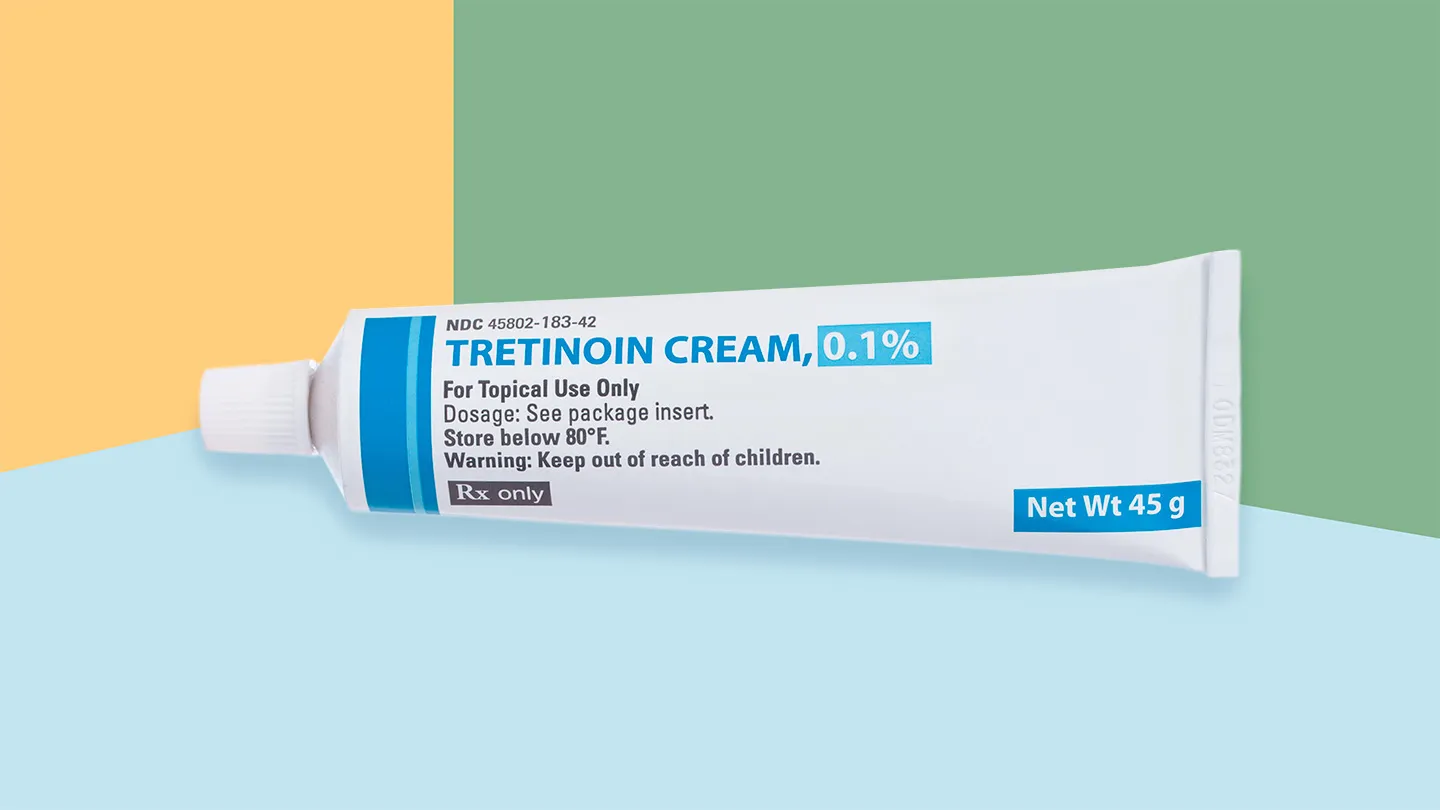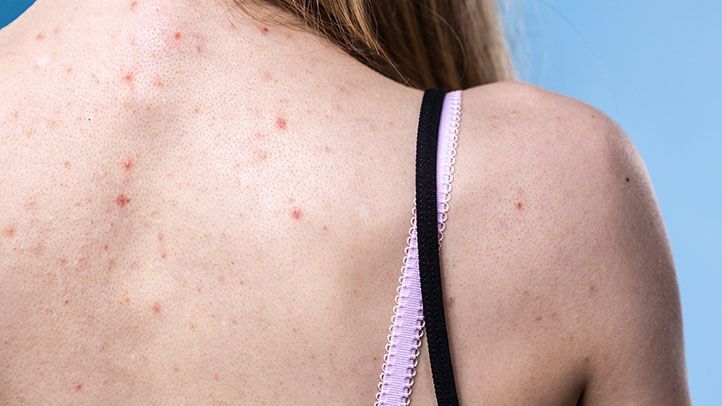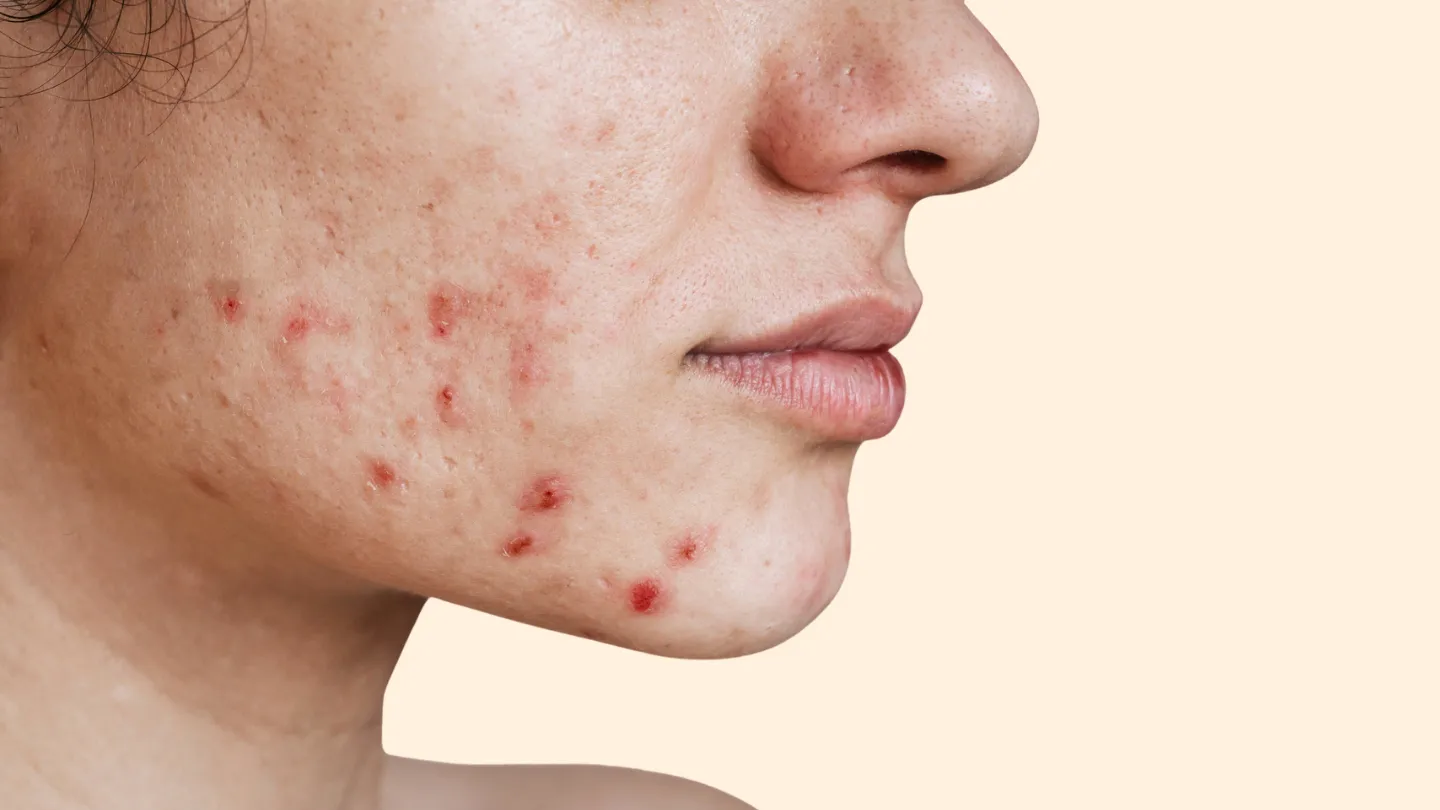Can Fasting Cause Acne?
Acne is a common skin condition that affects people of all ages, from teenagers going through puberty to adults in their 30s, 40s, and beyond. It's characterized by whiteheads, blackheads, and pus-filled pimples that can appear on the face, neck, chest, back, shoulders, and upper arms.
Many factors can trigger acne, from hormonal changes to genetics, diet, stress, and more. One potential acne cause that has gotten some buzz lately is fasting. But can abstaining from food and calorie-containing beverages really lead to breakouts?
Below, we'll explore the link between fasting and acne. We'll look at the different types of fasting, how fasting impacts your hormones, potential mechanisms linking fasting and acne, and tips to prevent acne flares if you do decide to fast.
What Is Fasting?
Fasting simply means abstaining from something, usually food, for a period of time. There are several different types of fasting:
- Intermittent fasting: Cycling between periods of eating and fasting, like 16:8 intermittent fasting with a 16 hour fast and 8 hour eating window daily.
- Alternate day fasting: Fasting every other day.
- Periodic fasting: Fasting a few days per week or month.
- Time-restricted fasting: Limiting eating to specific hours daily, like only eating from 12pm to 8pm daily.
- Prolonged fasting: Abstaining from all or most food and calorie-containing beverages for multiple days or weeks.
How Fasting Affects Hormones
To understand if and how fasting may influence acne formation, it helps to know how fasting impacts your hormones, especially androgens like testosterone.
Research shows that intermittent fasting and alternate day fasting may lower insulin levels and increase growth hormone. Lower insulin prompts the ovaries and adrenal glands to produce more androgens.
Growth hormone also boosts androgen production. Higher androgen levels ramp up sebum (oil) production in the skin, which can lead to clogged pores and acne.
However, the impact of fasting on hormones depends a lot on the specific type and duration of fasting. Short term fasts of 24-48 hours may boost testosterone. But extended fasting for 3 or more days can dramatically lower testosterone in both men and women after a week.
Potential Mechanisms Linking Fasting and Acne
Based on fasting's effects on hormones, there are a few potential mechanisms that could promote acne flare-ups:
- Increased androgen production, which ramps up sebum production and clogs pores.
- Dehydration and electrolyte/mineral imbalances during extended fasts, which may increase skin inflammation.
- Increased cortisol levels due to calorie restriction, which can also increase sebum production.
- Changes in gut bacteria when you stop eating for multiple days, which may impact skin inflammation.
The Link Depends on the Type and Duration of Fasting
With all that said, whether or not fasting worsens acne seems to depend on the specific fasting protocol.
For example, small studies show that intermittent fasting and alternate day fasting for up to 6 months seem to have no effect on acne in most people. In fact, reducing insulin production may even improve acne for some.
However, longer fasts of a full week or more do appear more likely to cause acne flares, especially in people prone to hormonal breakouts. This is likely due to the larger hormone fluctuations that occur with prolonged fasting compared to intermittent/alternate day fasting.
Tips to Prevent Fasting-Induced Acne
If you do decide to fast and are concerned about acne, there are some tips that may help prevent skin flare-ups:
- Stay hydrated by sipping on water, herbal tea, or bone broth during fasts.
- Take a high quality multivitamin to maintain micronutrient levels.
- Add a pinch of sea salt to water or broth to replenish electrolytes.
- Consider applying green tea, which may help regulate testosterone.
- Use retinoids/retinol skincare products to keep pores clear.
- Choose shorter fasts rather than prolonged fasts when possible.
- Stop fasting if you notice an acne flare-up.
What Causes Adult Acne?
Teenage acne is common due to hormonal changes during puberty. But why do some adults continue battling breakouts in their 20s, 30s, 40s, and beyond? There are many potential causes of adult acne.
Using Too Many Skin Care Products
It may seem counterintuitive, but using too many skin care products can actually clog pores and cause acne. Many products contain comedogenic ingredients that can build up on the skin.
For adult acne, it's best to keep your skin care routine simple. Use a gentle cleanser and lightweight moisturizer. Only use leave-on acne treatments like benzoyl peroxide, salicylic acid, or retinoids for spot treating pimples as needed.
Not Removing Makeup
When you wear makeup, some residue remains on your skin even after cleansing. If leftover makeup isn't fully removed every evening, it can clog pores and lead to pimples.
To avoid this, double cleanse at night. First use an oil cleanser to melt away makeup and sunscreen. Follow with your regular water-based cleanser to wash away any remaining gunk.
High Stress Levels
Stress causes increased production of cortisol and other hormones that can overstimulate the sebaceous glands, leading to oily skin and acne. Managing daily stress through meditation, yoga, exercise, and other activities can help.
Frequently Traveling
Traveling can disrupt your usual skin care routine and cause acne triggers like:
- Stress
- Irregular sleep
- Dehydration
- Eating out more
To prevent travel-related breakouts, drink plenty of water, bring your acne and skin care products with you, wash your face daily, change pillowcases, and avoid touching your face.
Foods High on the Glycemic Index
Studies show a link between high glycemic index foods like white bread, chips, cakes, etc. and acne risk. These foods cause faster and larger spikes in blood sugar and insulin levels compared to low glycemic foods.
High insulin triggers increased androgen and sebum production, setting the stage for acne. Limiting sweets and refined carbohydrates may help prevent breakouts.
Dairy Products
Some research indicates that drinking milk may worsen acne. The hormones and bioactive molecules in milk may ramp up sebum production and inflammation. If you suspect dairy triggers your breakouts, try eliminating it for a
FAQs
Does intermittent fasting cause acne?
Research shows intermittent fasting and alternate day fasting for up to 6 months generally does not cause acne breakouts for most people. However, results can vary by individual.
Can fasting clear acne?
Some studies suggest short-term fasting may help clear acne by lowering insulin levels. However, longer fasts can disrupt hormones and lead to flares. More research is still needed.
How can I prevent acne while fasting?
Tips to prevent fasting-induced acne include staying hydrated, taking a multivitamin, adding electrolytes to water, using green tea and retinoids, and choosing shorter fasts when possible.
Does fasting cause hormonal acne?
Prolonged fasting of a week or more can cause fluctuations in testosterone, cortisol, and other hormones that may lead to hormonal acne in some individuals.
Should I fast if I have acne-prone skin?
Those with acne-prone skin can try intermittent or alternate day fasting cautiously. Stop fasting if you notice increased breakouts. Extended fasts may be riskier for worsening acne.
Disclaimer: This article is for informational purposes only and does not constitute medical advice. Always consult with a healthcare professional before starting any new treatment regimen.
Related Coverage
Discover the importance of moisturizing for teenage skin and choose the right moisturizer based on your skin type, ingredients, sun protection, and non-comedogenic formulas....
Unopened fish food lasts 9-24 months. Flakes expire fastest in 2-3 months after opening. Store in airtight, cool containers. Discard if foul odor, pests, or texture changes....
Extreme blackhead popping can worsen acne. Learn the causes, risks of picking, when to extract safely, and better ways to care for blackheads without harsh popping....
Papules are small, solid bumps on the skin that can appear on the legs. Learn about the common causes like keratosis pilaris, folliculitis, eczema, and more....
Isotretinoin cost 2025 explained plus tips to trim the price using coupons, 90‑day mail‑order deals and insurance help....
Fungal acne is a skin condition caused by yeast overgrowth on the face. Learn what causes it, symptoms to spot, and effective anti-fungal treatment methods....
Clogged pores leading to small bumps are a common skin complaint. Excess oil, dead skin cells and makeup can cause congested pores. Using BHAs, retinoids and masks can clear them....
Does fasting help with acne? Discover the science behind the relationship between fasting and acne, potential benefits, drawbacks, and best practices for incorporating fasting into your skin care routine....
Proactiv face wash products help both teenagers and adults prevent acne breakouts. Lifestyle tweaks like avoiding face touching and eating low glycemic foods also improve skin....
Learn whether ashwagandha can cause acne breakouts due to hormone changes or detox reactions. Discover other acne causes and science-backed treatments....






